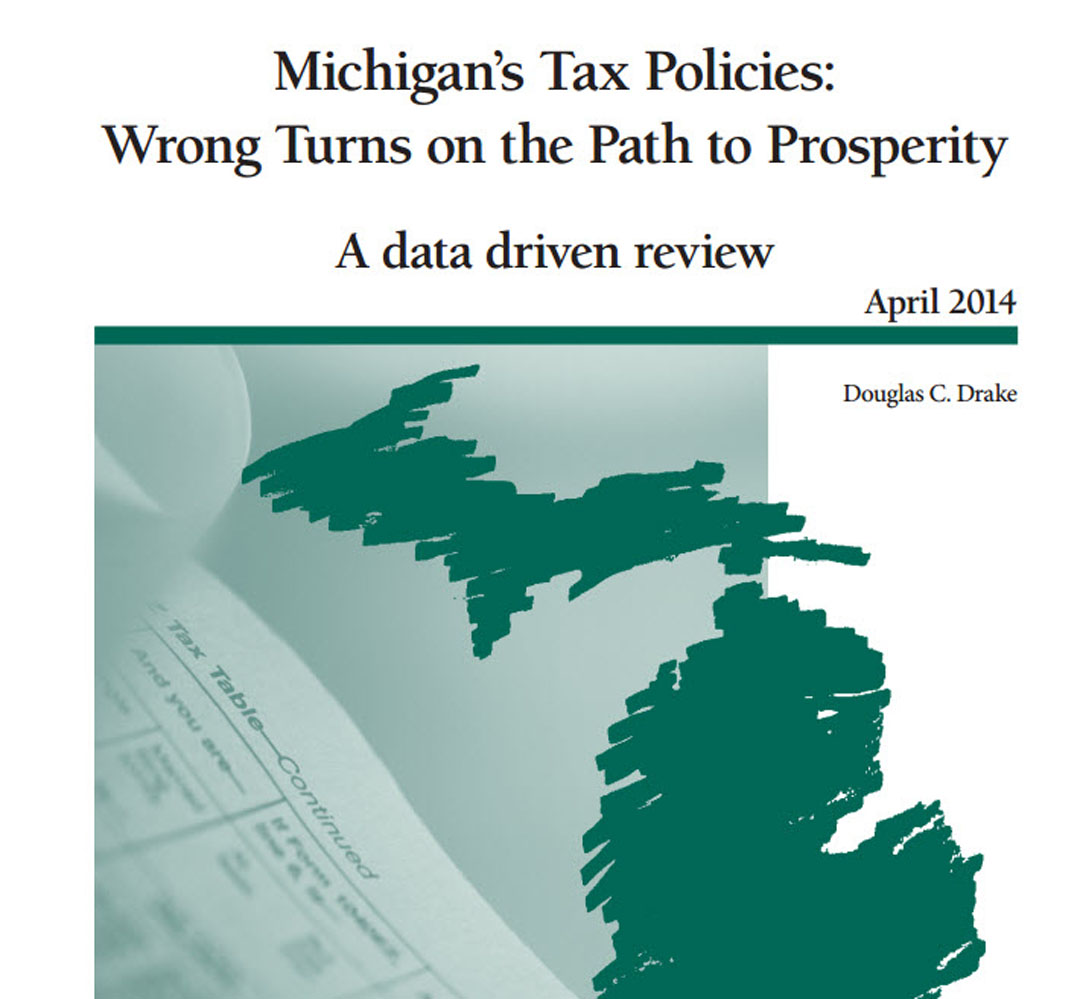Doug Drake has authored a must read report on the role lower taxes has played in shaping the Michigan economy over the last two decades. It’s entitled: Michigan’s Tax Policies: Wrong Turns on the Path to Prosperity. You can download the report here.
The report details two decades of tax cuts from 1994 to 2012. The costs of the cuts in declining public investments in education, support of local governments and infrastructure. And the consequences of those policies. A state that is less prosperous today than when it adopted tax cuts as its primary economic development strategy.
The report also details––as we have frequently in these posts––that Michigan has joined a large number of low tax states with poor economic outcomes. Low per capita income, high unemployment and high poverty rates.
Drake writes: “For several decades, Michigan has been part of an economic experiment: What would happen if a large, relatively prosperous state took major steps to cut taxes on its people and businesses. Would we see major increases in prosperity by the measures of income and employment, as predicted by supporters of these reductions in state and local taxes? Or would the necessary cuts in services to people lead to less prosperity and not attract good paying employers and less prosperity? This report suggests that the experiment has failed, and we should stop repeating it. … It would seem that if Michigan is a laboratory of democracy, the experiment has been run, and the data is in. Dramatic cuts in taxes do not increase prosperity measured by income of average citizens, or add to a state’s ability to create jobs.” (Emphasis added.)
… “Our conclusion is that the political focus of recent years – low taxes, smaller government, lower levels of services to Michigan citizens – has not and will not lead the prosperity its proponents claim is their target. We have taken the wrong path to prosperity. We must instead develop an investment strategy that is based on getting smarter, not cheaper, if we are to have our citizens prepared to take on and our state ready to attract the best paying jobs available in today’s economy. The greatest crisis Michigan faces today is one of vision, of a failure to recognize the need for investments in education, in infrastructure and in our communities. Michigan needs to get smarter, not cheaper. Failure to recognize the need for a change to a strategy of investment – in education, in infrastructure and in public safety and health will mean Michigan in the future will look more and more like the other low tax, low public goods states: poor with a perennially high unemployment rate.”
Exactly!







